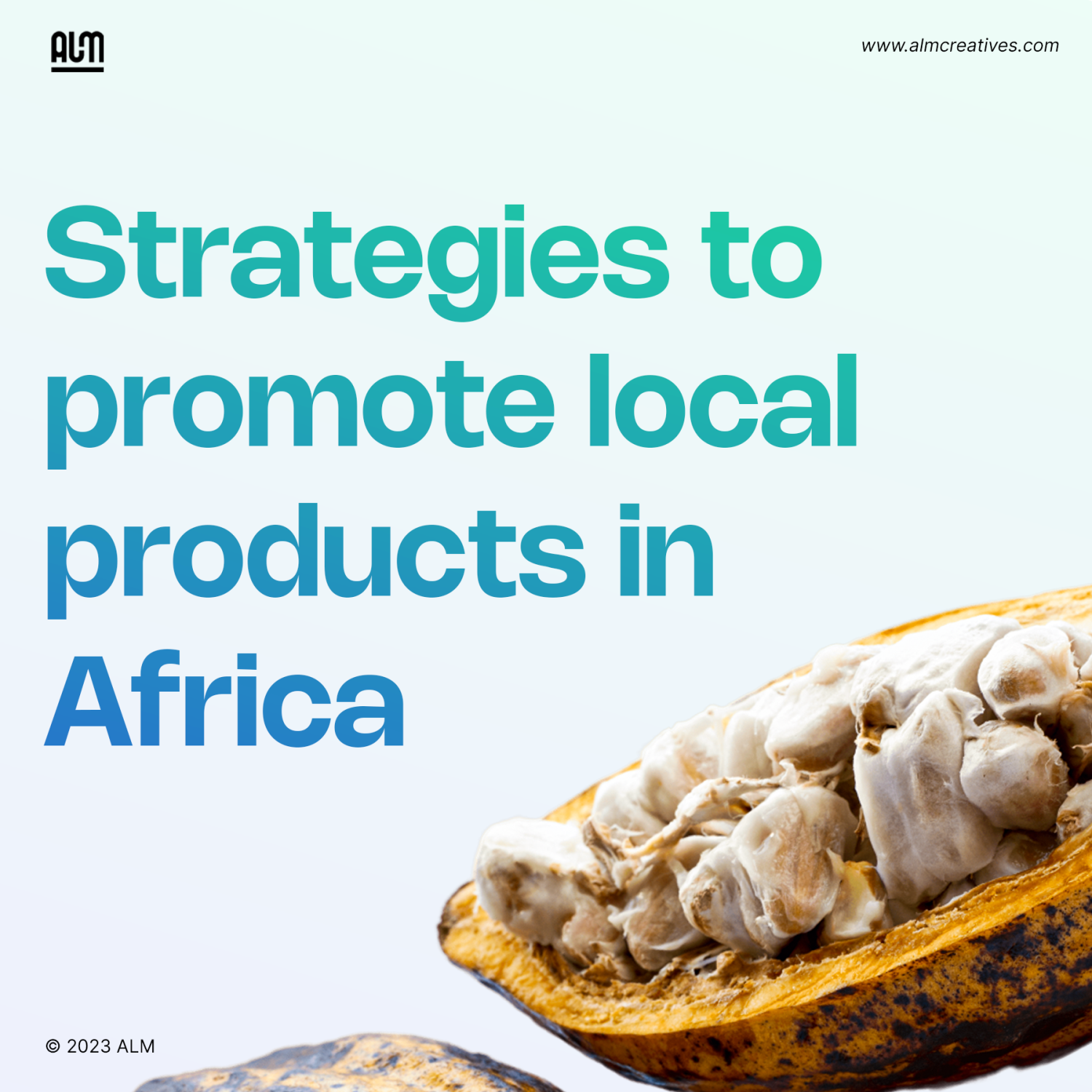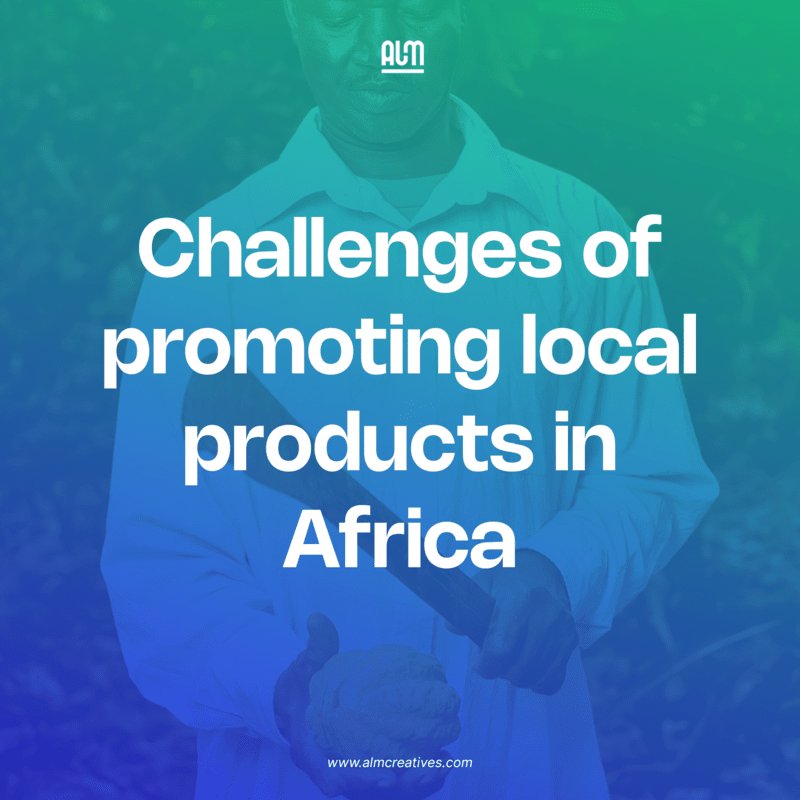Search
Challenges of Promoting Local Products in Africa
Business and advices
Introduction:
Africa boasts a plethora of exceptional local products, imbued with unique qualities that have the potential to thrive on a global stage. However, realizing this potential poses a formidable challenge due to various factors hindering the promotion of local products within the continent.
This article explores the key challenges and presents a compelling case for collaborative efforts to overcome these challenges, enabling the recognition and appreciation of African local products worldwide.
1. Limited Marketing and Advertising Skills:
A significant obstacle is the dearth of marketing expertise and infrastructure. Insufficient resources and knowledge among local producers prevent them from effectively showcasing their products to broader audiences.
Consequently, they struggle to penetrate new markets, resulting in restricted exposure and limited sales potential.
2. Inadequate Funding:
The global promotion of products necessitates substantial investment, which is often inaccessible to local producers. Insufficient financial resources impede their ability to compete on an international scale, further exacerbating the challenge of achieving wider recognition for African local products.
3. Intense Competition:
The highly competitive local and global marketplaces present a formidable hurdle for the promotion of African local products. Established global brands hold sway over consumer preferences, making it arduous for local producers to gain a competitive edge.
In fact, a staggering one-third of food, beverages, and similar processed goods consumed in Africa are imported, further intensifying the competition faced by local producers.
4. Absence of Formal Quality Certifications:
Trust in the market is undermined by the lack of formal certifications for quality and standards. This absence erodes confidence among consumers, hampering efforts to penetrate and stimulate demand for locally-made products.
Strategies for Overcoming Challenges

1. Government Investment in Infrastructure:
African governments and regional bodies should prioritize investments in infrastructure development, particularly in rural areas where most local producers are situated. Robust infrastructure will facilitate the efficient transportation of goods, reducing logistical challenges and improving market access.
2. Policy Interventions:
Policymakers must foster a business-friendly environment that empowers local entrepreneurs. Implementing policies that encourage and support the promotion of local products in international markets is vital. This could include offering financial incentives, streamlining regulations, and facilitating trade agreements to enhance market opportunities for African local producers.
3. Leveraging Digital Platforms and Social Media:

To increase visibility and access to local and global markets, local producers must harness the power of social media, digital platforms, and trade fairs. These cost-effective tools have demonstrated immense efficacy in promoting local African products, particularly in the agri-food sector.
Collaborative efforts among local producers will foster networking, boost productivity, and spur innovation, resulting in an array of compelling product offerings.
4. Technological Advancements and Quality Control:
Investing in technology and embracing formal certification processes for quality control will significantly enhance consumer trust and confidence. Identifying unique selling points and leveraging them effectively will attract discerning consumers, further driving the recognition and appreciation of African local products.
Driving Economic Development:
Promoting local products in Africa is an imperative driver of economic development. By supporting and nurturing the local market, African governments can generate substantial income and employment opportunities for their citizens.
The cultivation of entrepreneurship and the augmentation of socio-economic development will follow suit. With concerted efforts from policymakers, producers, and other stakeholders, the elevation of African local products to global recognition and value is not only plausible but also a strategic imperative for the continent's prosperity.
Conclusion:
Africa's local products possess immense potential, but their recognition and appreciation on a global scale are hindered by significant barriers. By addressing challenges related to marketing skills, funding, competition, and quality certifications, stakeholders can unlock the latent value of these products.
Collaborative efforts between governments, policymakers, and local producers, supported by the utilization of digital platforms and technological advancements, will facilitate market access and drive economic development.
The journey toward elevating African local products to global prominence is within reach, provided the concerted endeavours of all stakeholders are effectively harnessed.




